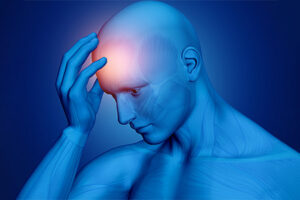
Headache Treatment in Siliguri
Headache Treatment in Siliguri are a common and often distressing condition that can significantly impact daily life. There are various types of headaches, including tension headaches, migraines, and cluster headaches, each with its unique characteristics. In this article, we will explore the treatment strategies and options available for individuals experiencing headaches.
 1. Identify and Address Triggers:
1. Identify and Address Triggers:
The first step in managing headaches is identifying triggers and making lifestyle adjustments. Common triggers include stress, poor sleep, certain foods, and environmental factors. Keeping a headache diary can help pinpoint triggers and provide guidance on avoidance strategies.
2. Over-the-Counter Medications:
a. Pain Relievers (Analgesics): Non-prescription pain relievers like acetaminophen (Tylenol) and nonsteroidal anti-inflammatory drugs (NSAIDs) such as ibuprofen (Advil) or aspirin can provide relief for mild to moderate tension-type headaches.
b. Combination Medications: Some over-the-counter medications combine pain relievers with caffeine, which can enhance their effectiveness in certain types of headaches.
3. Prescription Medications:
a. Triptans: Triptans are prescribed for migraines and cluster headaches. They work by constricting blood vessels and reducing inflammation. Examples include sumatriptan and rizatriptan.
b. Ergotamine Compounds ( Headache Treatment in Siliguri ): These are used for severe migraines and are often combined with caffeine.
c. Preventive Medications: For individuals with frequent or severe headaches, healthcare providers may prescribe preventive medications, such as beta-blockers, anticonvulsants, or tricyclic antidepressants, to reduce the frequency and intensity of headaches.
4. Lifestyle Modifications:
a. Stress Management: Relaxation techniques like deep breathing, meditation, and yoga can help reduce stress, a common trigger for headaches.
b. Sleep Hygiene: Ensuring good sleep habits, such as maintaining a regular sleep schedule and creating a comfortable sleep environment, can reduce headache frequency.
c. Dietary Modifications: Identifying and avoiding trigger foods or substances (e.g., caffeine, alcohol, and artificial sweeteners) can help manage headaches.
5. Biofeedback:
Biofeedback involves learning how to control physiological functions, such as muscle tension or skin temperature, to reduce headaches. It can be effective for migraine and tension-type headache management.
6. Physical Therapy:
Physical therapists can help address muscular issues that may contribute to tension-type headaches. They may provide exercises and techniques to improve posture and reduce tension in the neck and shoulder muscles.
7. Cervical and Occipital Nerve Blocks:
Nerve blocks, which involve the injection of anesthetic or anti-inflammatory medications around the nerves involved in headaches, can provide relief, especially for chronic migraines.
8. Cognitive-Behavioral Therapy (CBT):
CBT can be helpful for individuals with chronic headaches by teaching them to recognize and cope with stressors that trigger their headaches.
9. Botox Injections:
For chronic migraines, Botox injections are approved for reducing the frequency and severity of headaches.
Conclusion:
Effective headache treatment often requires a multifaceted approach tailored to the type of headache and the individual’s specific triggers and symptoms. It is essential to consult with a healthcare provider to determine the most suitable treatment plan. Successful management of headaches not only focuses on symptom relief but also on identifying and addressing underlying causes and triggers, improving lifestyle factors, and enhancing overall well-being. With the right strategies and support, many individuals can find relief from headaches and regain their quality of life.
